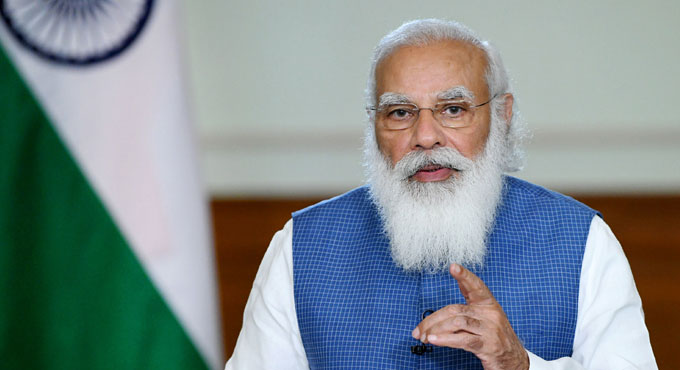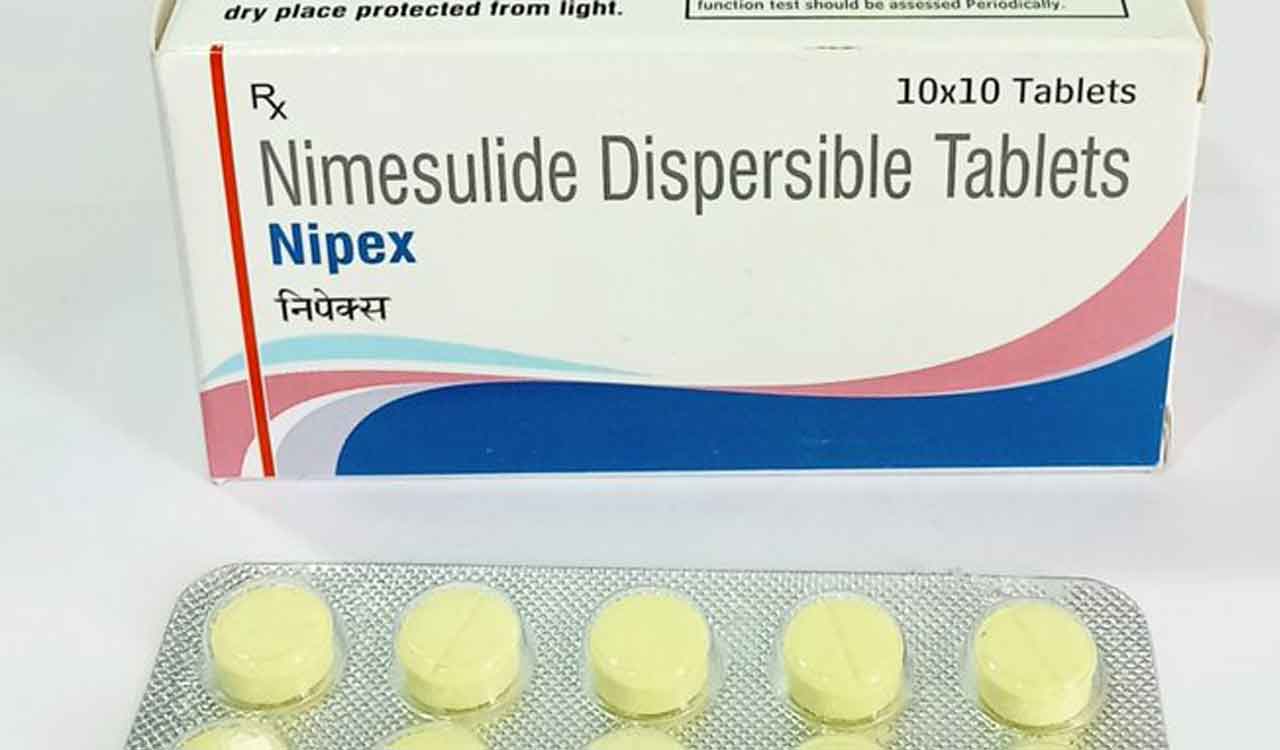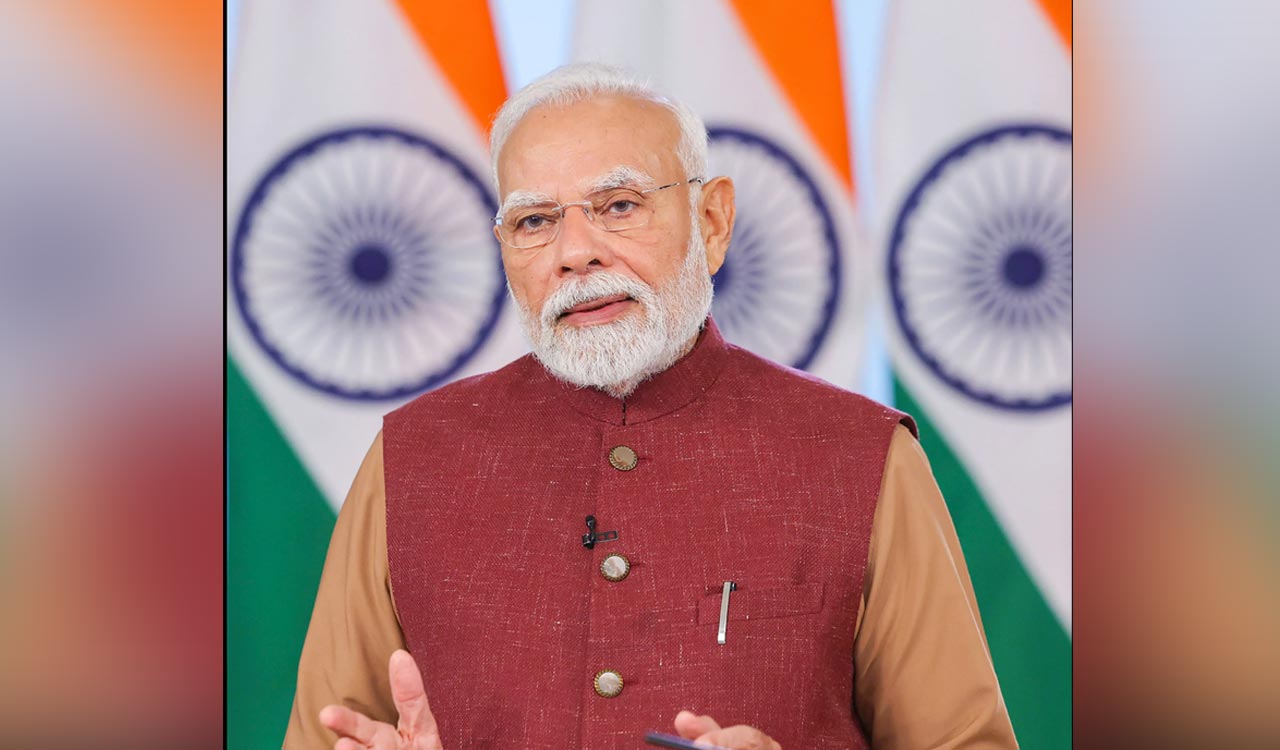Need decisive steps to stop emerging ‘second peak’ of Covid: PM to CMs
India recorded 28,903 new infections--the highest so far this year-- taking the total COVID-19 tally to 1,14,38,734, according to the Union Health ministry

New Delhi: As coronavirus cases in India hit a three month high, Prime Minister Narendra Modi on Wednesday called for “quick and decisive” steps to stop the emerging “second peak” of COVID-19 while a top official said there was “no signal of concern” over the use of Covishield vaccine in the country.Expressing concern over the rise in COVID-19 cases in parts of the country, Modi warned chief ministers during a video interaction that a “nationwide outbreak” may emerge again, and asked them to seriously follow the “Test, Track and Treat” approach.
The prime minister also made a vigorous push for use of the RT-PCR method so that it accounts for more than 70 per cent of the overall testing. India recorded 28,903 new infections–the highest so far this year– taking the total COVID-19 tally to 1,14,38,734, according to the Union Health ministry. As many as 30,254 new infections were recorded in a span of 24 hours on December 13.
The death toll increased to 1,59,044 with 188 new fatalities, the highest in around two months, the data updated at 8 am showed. Registering an increase for the seventh day in a row, the total active caseload rose to 2,34,406 which now comprises 2.05 per cent of the total infections, while the recovery rate has further dropped to 96.56 per cent, the data stated.
In his interaction over the pandemic situation and progress in the COVID vaccination drive, Modi said states like Maharashtra and Punjab have been seeing a rise in cases while the positivity rate has shot up in Maharashtra and Madhya Pradesh. Maharashtra reported 23,179 new cases of coronavirus on Wednesday, which is the highest single-day infection count so far in 2021, a health official said in Mumbai.
Seventy districts in the country have seen an increase in the positivity rate by over 150 per cent in the last few weeks, Modi said, underlining his concern.
“If we do not stop this emerging ‘second peak’ of coronavirus immediately, then a condition for a nationwide outbreak may emerge,” he said in his first interaction with chief ministers after the world’s largest vaccination drive began on January 16.
For stopping this growing pandemic now, the prime minister stressed the need to take “quick and decisive” steps. Noting that the seriousness of the local Administration about the use of masks is going down, he called for immediate addressing of the governance problems at the regional level. He warned that the confidence which came from our achievements in the battle against coronavirus should not turn into negligence.
Noting the need for provision of micro containment zones, he said everyone should be serious about ‘Test, Track and Treat’ as we have been doing for the last one year. He said it is very important to track every infected person’s contacts in the shortest time and keep the RT-PCR test rate above 70 percent. He insisted on more RT-PCR tests in states which give more emphasis to Rapid antigen tests like Kerala, Odisha, Chhattisgarh and U.P.
Urging chief ministers to ramp up testing and put in place other measures, he noted that many Tier 2 and 3 cities, which were earlier seen as “safe zones” due to low spread of the infection, were now witnessing a rise in positive cases.
One of the reasons behind India’s “successful” fight against the pandemic is that villages largely remained unaffected by the diseases, and if it now spreads across smaller towns then the rural areas too will be affected, he said.
Many of the most COVID-affected countries have suffered from many waves, he said, and noted that some states in India have also been seeing a sudden rise in the cases after a phase of decline.
People should not be put on panic-mode but there is need to ensure that they get rid of this problem as well, he said. Amid reports of possible side-effects of Oxford-AstraZeneca’s COVID-19 vaccine and its suspension in some European countries, the Centre said there is “no signal of concern” regarding its use in the country as of now.
Asked about the suspension of the AstraZeneca vaccine in some European countries, Dr VK Paul, NITI Aayog member (Health) told a weekly press conference it has only been done as a precautionary measure.
Concerns about AstraZeneca’s vaccine relationship with thrombotic events in people who received the vaccine have come to light and as a result, about 10 European countries have paused their AstraZeneca vaccination programme, he said.
“India’s own committee that looks at adverse effects is seized of this issue. For the last few days, it is tracking the information that is available to us in a very systematic manner and again I assure you that we have no signal of concern in this regard. Therefore, clearly our vaccination programme with Covishield will go on with full vigour.
“We are mindful of the fact to address this concern, based on the emerging situation. As of today, there is no concern at all with regard to Covishield,” Paul said.
India has approved two vaccines against COVID-19 — Covishield, manufactured by the Serum Institute of India(SII), and the indigenously-developed Covaxin of Bharat Biotech — for restricted emergency use in the country.
The Centre also said the average COVID-19 vaccine wastage in India is 6.5 per cent, with Telangana and Andhra Pradesh recording 17.6 and 11.6 per cent wastage respectively, as it called for optimal utilisation of the jabs.
The cumulative number of COVID-19 vaccine doses administered in the country has crossed 3.64 crore, the Union Health ministry said. This included the first dose for 1,24,74,362 beneficiaries more than 60 years old and 23,86,568 beneficiaries aged 45 to 60 with specific co-morbidities.
Addressing a press conference, Health Secretary Rajesh Bhushan said COVID-19 vaccine wastage in five states — Telangana, Andhra Pradesh, Uttar Pradesh, Karnataka and Jammu and Kashmir — is higher than 6.5 per cent, which is the national average.
During his video interaction, the prime minister had also spoken about wastage of vaccines.
Bhushan also said that states are being advised to ensure all close contacts of any positive person are traced, isolated and tested in 72 hours.
Amid rising coronavirus cases in Punjab, Chief Minister Amarinder Singh urged the Centre to review its COVID-19 immunisation strategy and vaccinate all age groups in selected areas. He also sought occupation-based immunisation.
He called for inoculation of school and college students and teachers, judges, bus drivers and conductors, panches and sarpanches, mayors, municipal committee presidents, councillors, MLAs and MPs to pave the way for normalisation of crucial activities and to check COVID-19 super-spreaders.
Related News
-
PM Modi to inaugurate India AI Impact Expo 2026 at Bharat Mandapam
-
Health budget rises 10% as govt plans integrated medical hubs
-
Union Health Ministry bans Nimesulide above 100 mg to prevent health risks and environmental damage
-
Dense fog forces PM Modi’s chopper to turn back, Taherpur rally likely to be addressed virtually
-
SKLTHU hosts three-day vegetable research programme for scientists, farmers
31 mins ago -
TGCHE holds workshop to boost government college NIRF rankings
36 mins ago -
Kabaddi player Ramavath Nandi returns after two major knee surgeries
41 mins ago -
KP Vivekananda slams Revanth Reddy over failed governance
43 mins ago -
Harish Rao condemns Balka Suman’s arrest, accuses Congress of undermining democracy
48 mins ago -
BJP expresses willingness to join hands with BRS for Khanapur municipal election
49 mins ago -
BRSV president slams Congress for arresting Balka Suman, calls for bandh on Thursday
50 mins ago -
Fertilizer booking app fails to end farmers’ urea troubles in Karimnagar
52 mins ago




